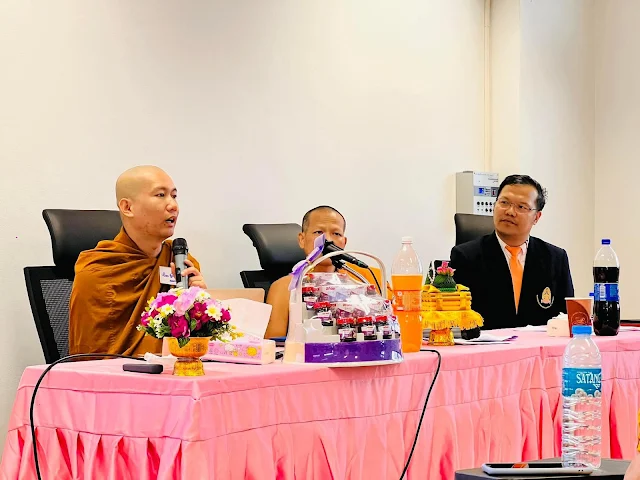"When you turn to examine the body, do you still find the 32 parts of the body? If you can't find these 32 parts, can humans, devas, or brahmas find them? Why can't they be found? (Because they don't exist, Venerable Sir). Think about this.
Consider this practical example: For those who are married, don't they have children? Do these children come with names at birth? Do they have names from birth?
Is this something we need to ask others, or is it our direct experience? Parents give these names; they don't come with birth, do they? Think about it. Don't people then become attached to these names, saying 'so-and-so died' or 'so-and-so is wealthy'? They're attaching to names that don't inherently exist.
Say someone has four sons. For the first son, they might name him 'Bha U' (First Son), for a daughter it might be 'Khin U' or 'Min U' or 'Maung U' or 'Bha U'.
The second might be 'Bha Aung', the third 'Bha Maung', and the fourth 'Bha Htwe'. Don't they give such names? And when they grow up, don't people become attached to thinking 'there is a Bha U'? Think about it. In reality, these are just names given by parents.
These names - 'Bha U' for example - are neither rupa (material form) nor nama (mind). They are just concepts (nama-pannatti). Concepts are not suitable objects for vipassana meditation. How can you find something by looking for what doesn't exist? Isn't this worth contemplating? Can you find what doesn't exist? People don't even know what actually exists.
The body shows its impermanence through aches, pains, stiffness, heat, cold, itching - doesn't it demonstrate these? But people don't understand, do they? Isn't this worth contemplating?
That's why it's taught that 'sutava ariyasavako' - one who has learned the teachings can become a Noble One. These are the essential points.
One needs to understand:
- The five aggregates (khandha)
- The Four Noble Truths (sacca)
- Dependent Origination (Paticca-samuppada) - cause and effect..."
